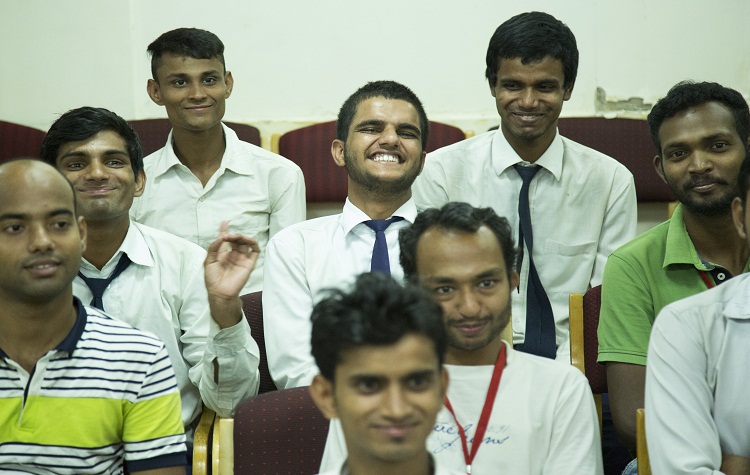If you are a parent of a special child, you would probably have faced situations where you found yourself overwhelmed by his special needs – be it medical, care giving or educational. Many a times, you would have been in want of information about how to support him through various stages of life.
It is to help such people, Amrit Foundation of India (Amrit) has started Swechha – Services Bank, ‘a one-stop web portal for all those who care for Children with Challenges (CwC).’ The ‘Services Bank’ database provides information on services such as occupational therapy, psychology, psychiatry, speech and hearing therapy, special education, physiotherapy, vocational therapy, counselling, residential care, lawyers and advocates, special schools and hospitals. Besides this, it also contains general information related to employment, housing, support groups and state support.
Priyanka Singh, Programme Lead, Amrit, says, “Special children have different requirements. People often don’t know what to do, where to get the necessary advice/information. We offer a single platform where caregivers can get all kind of information regarding the requirements of their loved ones.” The organisation provides a platform for those who are marginalised by intellectual and developmental challenges, giving them equal opportunity through specialised services.
“There is a shortage of special educators which makes it difficult to educate the children… We need teachers who have passion and sensibility and sensitivity”
However, besides information, one of the major challenges before parents is to ensure quality education for their children.
Dr Jitender Aggarwal, Founder, Sarthak Educational Trust, explains, “Education level is low among these children. Plus, there is a shortage of special educators which makes it more difficult to educate them.” The trust works towards inclusion and mainstreaming of Persons with Disability (PwD) since 2004. To achieve the said objective, it works on life cycle approach, wherein, early intervention, inclusive education, vocational skilling, placement support and advocacy activities are managed for PwDs.

“We need teachers who have passion and sensibility and sensitivity,” said Geeta Chaturvedi, Director of Programming and Research Development, VISHWAS (Vision for Health Welfare And Special Needs), Haryana. Vishwas works for the betterment of disabled people in partnership with all stakeholders including children, their families, community and the government by building knowledge and capacities on inclusive practices. It currently runs a research and training centre, adult training centre, several community based programmes and a school – Vishwas Vidayala. The school provides education up to class 8th and as per Chaturvedi, 20 percent students studying in it belong to special education category. “We have designed our curriculum in such a way that all students can study together in one class. Some of our students are first generation learners, some have learning disability. We divide them into three learning levels based on their aptitude and then teach them accordingly, in the same class,” said Chaturvedi, adding, “For us, the challenge is not to teach these children, but to pay salaries to our teachers. We need quality teachers. Since we are an NGO and can’t pay fat salaries, not many well-qualified and experienced teachers are interested in working for us. Attracting funds is tough. People are ready to help in kind but not in cash.”
While basic schooling is paramount, the chief concern for parents is to provide their children with education which makes them employable.
Children are now being trained in unconventional fields like communication, hospitality, IT – the idea is to move away from traditional domains and explore new fields
Sarthak caters to this requirement by partnering with corporate houses for employability of their children. Amrit is inculcating skill development among intellectually disabled in unconventional fields like hospitality, IT etc. “The idea is to move away from traditional domains and explore new fields,” explains Singh. Meanwhile, Vishwas has started a Project BAGS OF HOPE in collaboration with Rtn Naqshband Institute for the Physically Challenged, wherein a bag production unit for training and income generation for person with disabilities has been set up.
In December 2016, Indian Parliament passed the much-awaited The Rights of Persons with Disabilities Bill 2014. The new act has been hailed by activists as it expands the definition of disability to cover 21 conditions including acid attack, Parkinson’s disease, cerebral palsy, autism and thalassaemia among others. It further lays down provisions on the guardianship of mentally ill people.
“Legal framework is there but implementation is poor. We need sensitive leaders and administration. An inclusive education is required. Every teacher should be capable of teaching special children – this should be a part of their teacher training programme,” said Chaturvedi, adding, “We need to accept and respect individual human rights. These people require equal opportunities not our sympathies. Society’s attitude is a bigger barrier than a person’s disability.”
You can meet the representatives of these and several such grassroots organisations doing exceptional work using digital tools at Prayag, a first of its kind digital India mela being organised by New Delhi-based Digital Empowerment Foundation, on Feb 25 at Surajkund, Faridabad. The article is third of five part series that The Peeper Times, as the event’s Media Partner, is writing for Prayag.
Do you feel strongly about something? Have a story to share? Write to us at info@thepeepertimes.com or connect with us on Facebook or Twitter



